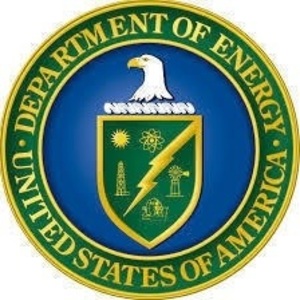BETO establishes Agile BioFoundry to streamline biomanufacturing




October 11, 2016
BY U.S. Department of Energy
On Oct. 1, the U.S. Department of Energy’s Bioenergy Technologies Office established the Agile BioFoundry—a new consortium of nine Energy Department national laboratories working to standardize and streamline the entire biomanufacturing pipeline by uniting computer-assisted biological pathway design, process integration, process scale-up, and machine learning.
Lawrence Berkeley National Laboratory is leading the consortium. The national laboratories have a unique capability to provide facilities and tools and to share the cumulative knowledge gained to accelerate progress in both public and private sectors. This coordinated public effort will aid in efficiently realizing BETO’s goal to commercialize biofuels and renewable chemicals.
The ABF, with $35 million requested for fiscal year 2017, will achieve its goals by developing a system for product development and commercialization that will be broadly applicable to many bioproducts. The system will be an iterative Design-Build-Test-Learn process that involves the following:
Design—Selecting microorganisms and biochemical pathways through integrated analysis, and planning how to achieve increased product output using computer-assisted design
Advertisement
Build—Using molecular biology tools and laboratory automation to generate collections of microbial strains to be tested for improved performance
Test—Evaluating the strains generated using a multi-omics approach and process integration
Learn—Compiling the results to inform future experiments using advanced statistical algorithms and machine learning.
The ABF hopes to achieve a 40 percent reduction in energy intensity and 60 percent reduction in carbon intensity over current manufacturing processes, and also has a goal of reducing product time to market by 50 percent. The ABF plans to serve as a resource for data, software tools, analytical and biological protocols, and economic analyses, disseminating information through its website. In addition, the ABF will seek to actively partner with industry to ensure that the latest developments in synthetic biology are broadly accessible, enabling bio-derived products to reach the market more quickly.
Advertisement
Development of the ABF is part of BETO’s Conversion Research and Development Program, which funds projects to develop technologies for converting biomass feedstocks into viable biofuels and bioproducts, moving toward an economically competitive and environmentally sustainable bioeconomy.
Related Stories
The U.S. Department of Energy Bioenergy Technologies Office (BETO) announced up to $23 million in funding to support research and development (R&D) of domestic chemicals and fuels from biomass and waste resources.
The U.S. DOE has announced its intent to issue funding to support high-impact research and development (R&D) projects in two priority areas: sustainable propane and renewable chemicals and algal system cultivation and preprocessing.
Sens. Sherrod Brown, D-Ohio, and Pete Ricketts, R-Neb., in August introduced the Renewable Chemicals Act, a bill that aims to create a tax credit to support the production of biobased chemicals.
The Chemical Catalysis for Bioenergy Consortium, a consortium of the U.S. DOE’s Bioenergy Technologies Office, has launched an effort that aims to gather community input on the development of new biomass processing facilities.
USDA on March 8 celebrated the second annual National Biobased Products Day, a celebration to raise public awareness of biobased products, their benefits and their contributions to the U.S. economy and rural communities.
Upcoming Events










